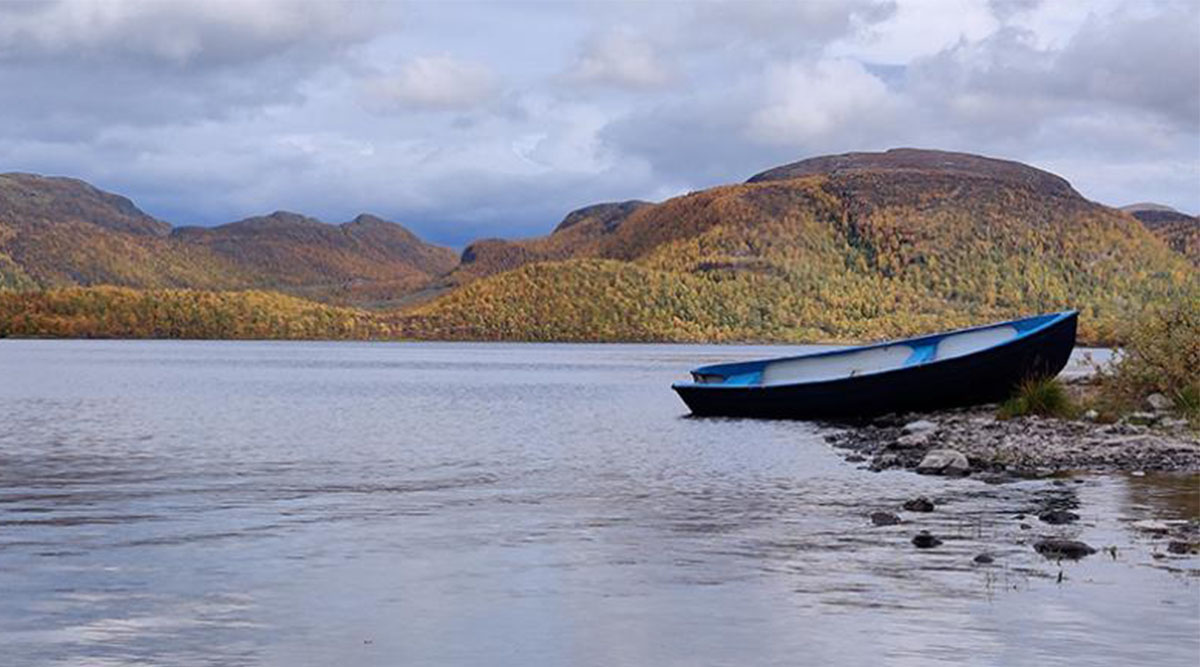 A lake in Norway, one of the 29 that were part of the study. (Image credit: S.G.Woodman / Cambridge University)
A lake in Norway, one of the 29 that were part of the study. (Image credit: S.G.Woodman / Cambridge University)A research study involving 29 European lakes has found that some naturally-occurring freshwater bacteria grow faster and more efficiently on the remains of plastic bags than they do on plant matter like leaves and twigs. The scientists behind the research believe that enriching water bodies with these species of bacteria could be a way to remove plastic pollution from the environment.
The results of the study, published in Nature Communications, suggest that plastic pollution in the lakes is “priming” the bacteria for rapid growth. Not only are the bacteria breaking down the plastic, but they are better able to break down other natural carbon compounds in the lake. The researchers believe this is happening because the carbon compounds from plastics are easier to break down as food for the bacteria.
“It’s almost like the plastic pollution is getting the bacteria’s appetite going. The bacteria use the plastic as food first, because it’s easy to break down, and then they’re more able to break down some of the more difficult food – the natural organic matter in the lake,” said Andrew Tanentzap, one of the co-authors of the study, in a press statement. Tanentzap is part of the University of Cambridge’s Department of Plant Sciences. A study by the same authors published last year discovered that European lakes are potential hotspots of microplastic pollution.
When plastics break down over the years, they release simple carbon compounds. These compounds are different from those that are released by organic matter like leaves and twigs. The carbon compounds released by plastics were shown to be derived from additives added to plastic products, including adhesives and softeners.
Subscriber Only Stories
For the study, researchers sampled 29 lakes across Scandinavia between August and September 2019. They ensured that the lakes differ in latitude, depth, area, average surface temperature and diversity of dissolved carbon-based molecules so that the results would be applicable to a wider range of water bodies.
Researchers filled glass bottles with water from each lake. After this, they cut up plastic bags from four major UK shopping chains and shook these separately in water until the bags released carbon compounds. A small amount of this “plastic water” was added to half the glass bottles and the same amount of distilled water was added to others. After keeping the bottles in the dark for 72 hours, bacterial activity in each of the bottles was measured.
In the lake water bottles with the “plastic water,” the bacteria had doubled in mass very efficiently. Around 50 per cent of this carbon was incorporated into the bacteria in 72 hours.
- The Indian Express website has been rated GREEN for its credibility and trustworthiness by Newsguard, a global service that rates news sources for their journalistic standards.

